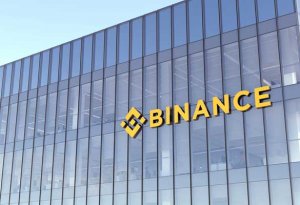Chinese government puts its foot down: End of the Chinese IB for Western FX firms?
The new rules stipulate that customers of firms that need to send money abroad must give reasons for doing so, including having to pledge to the government that any money sent abroad won’t be used for securities including online trading

Any speculation by industry bodies, central banks, liquidity providers and brokerages in the free market nations of the world that China would somehow liberalize its policies and angle them toward allowing overseas business to be conducted more freely has most certainly been quashed this week.
Today, China’s communist government has set new requirements for citizens wishing to convert the yuan into any foreign currency.
The State Administration of Foreign Exchange, the currency regulator, said in a statement which was issued on December 31 2016 that it wanted to close loopholes exploited for purposes such as money laundering and illegally channeling money into overseas property.
While the regulator left unchanged quotas of $50,000 of foreign currency per person a year, citizens faced extra disclosure requirements from January 1 this year.
One of the main commercial tugs-of-war has been that whilst mainland China is a vast and highly attractive place in which to do business, with eager retail traders that often have enormous property portfolios generating long-term investment potential whilst trading the monthly rents from said properties on the extremely liquid currency market, all loyal to regional introducing brokers (IBs) which themselves are more like large brokerage firms, while at the same time the entry barriers are high because of the inability to gain any transparency with regard to any metrics in China, and the Chinese government policy of blocking the vast majority of internet sites, payment channels and connections with the non-Chinese world.
An even greater advantage is that the highly sophisticated IBs in China’s several second tier development towns are often responsible for over 90,000 lots per month, made up of a combination of retail traders and managed FX funds, and have, along with their clients, a preference for Western brokerages based in Britain, Canada or Australia.
This is all a fantastic and well organized business opportunity for brokerages, however the entry barrier is that China’s communist government blocks all forms of money transfer via merchant services providers such as Visa or Mastercard, neither of which have any presence in China and do not function there, and the underlying knowledge that transferring large sums of money abroad to do business with non-aligned companies in the Western world is illegal.
The de facto way of doing business via IBs is to found a joint venture partnership which is partially owned by a Chinese entity which in turn has a percentage owned buy the Chinese government as is mandatory, and then for the Chinese IB to manage customer relations, portfolios, retail client accounts, withdrawals, back office functions and the general operation of the business, whilst using a Western broker as the actual dealer.
This requires sending funds to and from overseas firms, and with the facilitation by China UnionPay which is the state owned merchant services provider for credit cards and online payments, to be able to have payment agreements with Western companies, as well as various other means, it has become a bit easier these days.
However, the long arms of the Chinese Communist Party are never far away and the firewall is the most advanced internet system in the world and literally is an all-seeing eye.
China’s authorities have sounded the alarm in recent weeks over the risk of capital outflows from the economy, but there was little evidence at Beijing and Shanghai banks on Tuesday that Chinese individuals were rushing to lock in 2017 quotas to buy foreign exchange.
According to many reports in China, much of which are censored by the government, very few people arrived at banks in order to sell yuan for dollars on the first business day of the new year, when buyers in theory could have made use of their quotas.
Under China’s capital controls, individuals are permitted to buy up to $50,000 in foreign exchange a year, and data shows January is typically a standout month for onshore foreign currency deposits.
This is a difficult thing to consider when taking a multitude of deposits in one go from an IB in China.
The new rules stipulate that customers of firms that need to send money abroad must give reasons for doing so, including having to pledge to the government that any money sent abroad won’t be used for overseas purchases of property, securities (including online trading), life insurance or investment-type insurance. While such rules aren’t new, citizens previously didn’t have to sign such a pledge.
Pretty much nobody will flout this rule, because if an individual or company executive signs a form to show what the funds are for, and then it transpires they have been used to buy securities or fund an overseas account against the terms signed for on the pledge, the government will not litigate as they do in other nations, but instead treat it as a criminal matter, and given the Chinese respect for law and order and the unwillingness of any citizen to go against the government, this law will be taken very seriously indeed.
Bearing in mind that many firms have made substantial inroads into China, and the ones doing it the right way have actually put themselves on the ground in mainland China, using local knowledge. Blackwell Global’s massive IB network is a case in point, as is the huge market share FXCM and FXDD have managed to engender, all using locally based executives which look after that particular region, from that particular region.
A visit to the vast majority of large IBs from Shenzhen to Zhengzhou, or Guangdong to Chengdu will reveal Chinese-language brochures from these firms marking them out as the brokerages of choice, however business for firms without Chinese footprint of any kind is now likely to become somewhat difficult indeed.









